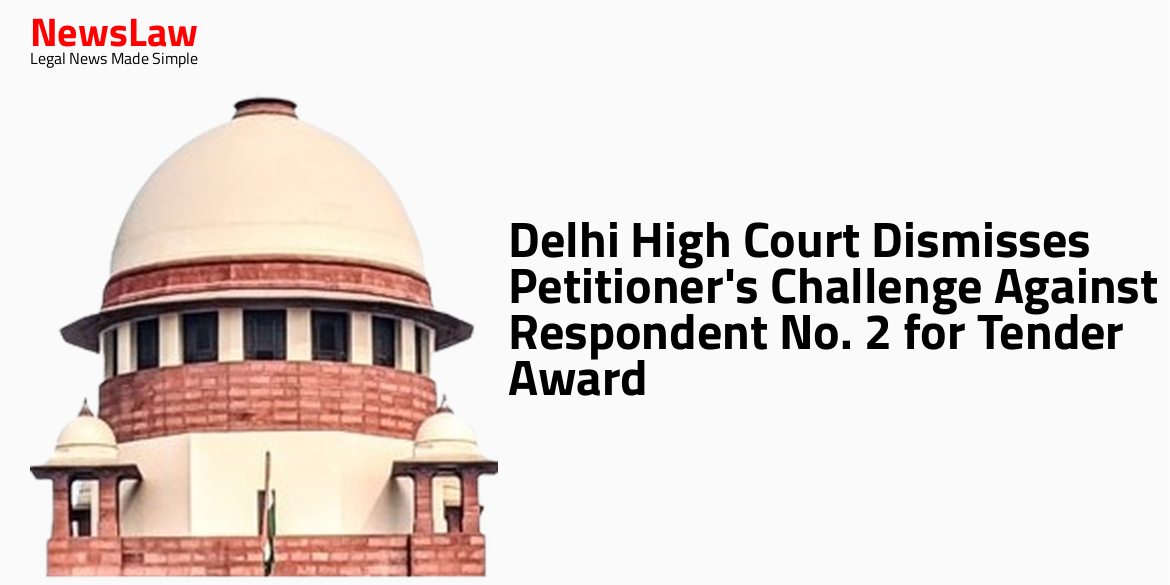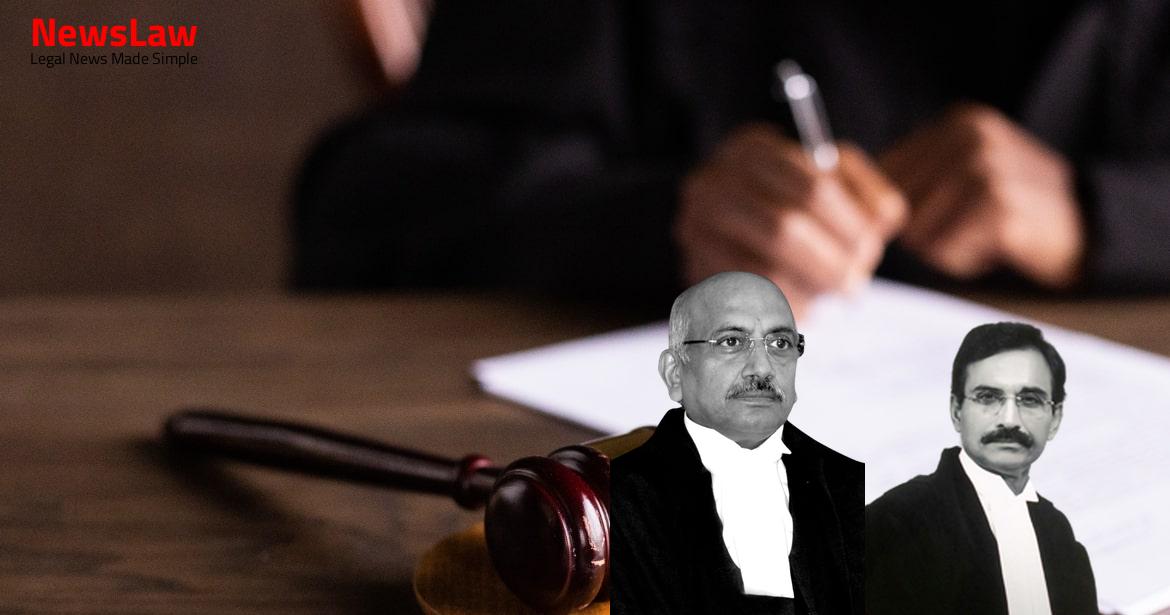In a recent judgement by the Delhi High Court, the challenge brought forth by the Petitioner against Respondent No. 2 regarding the tender award has been met with dismissal. The case involved the issuance of a Tender by Indian Oil Corporation Limited, with Respondent No. 2 being the distributor of Respondent No. 3. Stay updated on the details of this legal battle and its implications.
Facts
- Petitioner is one of the only two Indian Original Equipment Manufacturers of SDH equipment.
- Respondent No 2 is the distributor of Respondent No 3 and has a direct relationship with each other.
- The subject Tender was issued by Indian Oil Corporation Limited for the development of an oil pipeline project in Gujarat, Rajasthan, and Haryana.
- Petitioner filed a complaint on 23 October, 2023, regarding the Award of the Tender.
- The technical bids of Respondent Nos. 2, 3, and 4 had qualified for the subject Tender.
- Petitioner submitted its quotation to Respondent No 4 on 21 April, 2023, for the bid submission.
- Honeywell Automation India Ltd approached the Petitioner for a quotation for equipment supply.
Issue
- The first question is whether the Petitioner can file separate proceedings against Original Name for challenging the award of the tender to Original Name 2.
- The issue revolves around the independence of the Petitioner’s claim against Original Name in relation to the tender award.
Arguments
- The Petitioner filed a complaint against the misconduct of Respondent Nos. 2 and 3, but Respondent No. 1 failed to take prompt action on it.
- Respondent Nos. 2 and 3 were alleged to have submitted separate bids for the same Tender, violating Clause 5.1.6 which prohibits such actions to prevent cartelization.
- The Petitioner, being a third-party, cannot challenge the Tender awarded to Respondent No. 2 according to Clause 5.1.6.
- The Petitioner argues that Respondent Nos. 2 and 3 have frustrated the entire tender process by their actions.
- The Petitioner made representations to Respondent No. 1 requesting actions against Respondent Nos. 2 and 3, but no concrete steps were taken.
- The Petitioner approached the Court as a last resort after non-action from Respondent No. 1.
- Petitioner’s contention of having a substantial stake in the Tender award is misconceived.
- The scope of work under the Tender includes supply, installation, and maintenance of telecommunication systems for a national project.
- Entertaining the petition would go against public interest as the Petitioner is a third party who did not participate in the bidding process.
- The Petitioner only had a minor role in supplying SDH equipment, a small component of the overall project.
Analysis
- The petitioner did not participate in the bidding process and chose to stay outside the process.
- Being the intended supplier of SDH equipment does not give the petitioner the right to challenge the tender process.
- The issuance of a Commitment Letter does not make the petitioner a bidder in the tender process.
- A party not participating in the tender process lacks the locus to challenge the tender award or make grievances.
- Reference to a Supreme Court judgment emphasized that a non-participating party cannot acquire rights in the tender process.
- A case example involving DDA and an approved vendor was used to illustrate the importance of direct involvement for standing in a challenge.
- The objective of the tender process is to ensure transparency, competition, and equal opportunity for all bidders.
- The present petition is barred by delay and laches.
- Interference at this belated stage would not be in public interest based on observations from the Supreme Court.
- The Petitioner was aware of the disqualification of Respondent No 4 in September 2023.
- The Tender was awarded to Respondent No 2.
- The Petitioner does not dispute that work has already commenced and been executed substantially after the Tender was awarded.
Decision
- Due to lack of locus standi, the issue of territorial jurisdiction was not adjudicated.
- The present petition was found to be without merit and was dismissed.
- The pending application was disposed of.
Case Title: PRIMATEL FIBCOM LTD Vs. INDIAN OIL CORPORATION LIMITED & ORS. (2024:DHC:4657-DB)
Case Number: W.P.(C)-8220/2024



